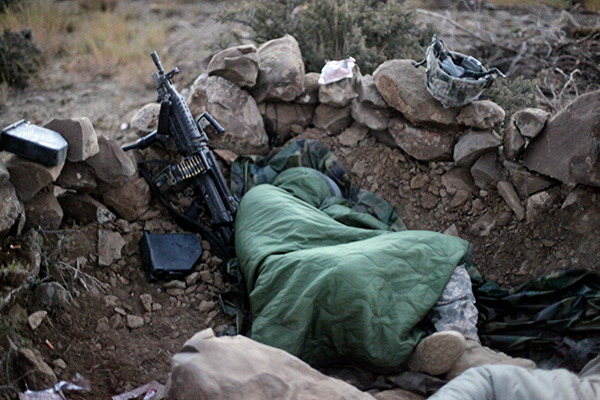Think about it. If you’re tired, you often eat more, thinking it will give you the boost you need. But Morgan said it’s really just hormones creating that feeling of hunger, especially for carbs.
“Those same hormones hang onto fat calories better. So, you consume more fat calories, but you don’t mobilize them,” Morgan said. Meaning you’re more inclined to be lazy than burn off those extra snacks.
The stress of sleep deprivation can also amplifies neck, back and joint pain.
“Your body’s like, ‘OK, you didn’t give me enough rest today. The only way I’m going to get through this day is to surge adrenaline and cortisol,’” Morgan said. “That makes your pain fibers more sensitive.”
So get to work on improving your sleep! But how?
Try Deep Breathing Before Meds
A lot of people’s minds race when they try to sleep. Telling yourself to relax won’t work.
“All the things that have been kept at bay by the distractions of the day start flooding in. You start thinking about everything that went wrong or things that frustrate you, or planning for tomorrow,” Morgan said. “That can get your mind churning and your arousal levels up so high you can’t sleep.”
Deep breathing can help minimize that. It’s a pre-sleep ritual Morgan said to try before medications.
“When you breathe in, you have a lot of oxygen in your lunges, and your heart wants to send more blood to pick it up,” Morgan said. “When you exhale, it’s the opposite. You have low oxygen in your lungs. It’s a reflex to slow your heart and relax your body down.”
Yoga breathing, guided imagery and progressive muscle relaxation are also options to try.
How Do Sleep Labs Help?
Alas, if tactics you try on your own don’t work, there’s always a sleep lab. There are a few available to military members.
At NICoE, it’s pretty straight-forward. The first night is spent sleeping at the lab, where techs hook you to a bunch of wires to measure electroencephalogram (EEG) patterns, airflow and oxygen when you fall asleep. The techs usually have a good understanding of what your issues are by morning.
Morgan said service members are usually pretty comfortable since they often don’t sleep well at home right after deployment.
“They’re off watch. They feel comfortable. They feel protected. They don’t feel like they have to take care of their families,” Morgan said.
He said about 60 percent of patients only stay one night, while the rest return due to obstructive sleep apnea – when their airway collapses or is blocked, causing shallow breathing or pauses in breath. Those patients are given a continuous positive airway pressure mask, or CPAP, which increases air pressure to keep the airway open.
All patients are then monitored at home for another two weeks with something akin to a FitBit. Morgan said the majority of patients improve, and many get better within six months.
So long story short, if you don’t sleep well, be sure to talk to a doctor about it. It can get better!
Featured Content and Media – DoD










COMMENTS